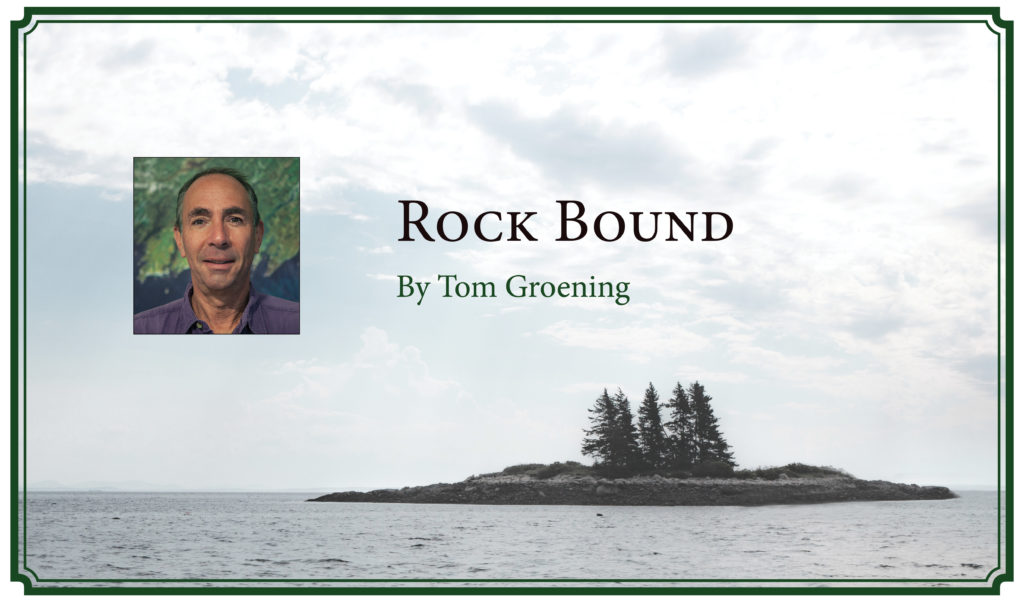By Tom Groening
For journalists, elections are something like Christmas morning. Actually, as the polls close and the counting starts on Election Day evening, it feels like Christmas Eve. Then the final tally is like opening the presents under the tree the next morning.
Even those of us with some mileage on us get excited. When I was with the Bangor Daily News, a friend and former colleague—you know who you are—would call me at the bureau where we would tally the results and, in a pretty genuine Maine accent, pretend to be the clerk from some rural town, passing on the results, finally laughing at my breathless responses to getting some numbers on paper.
And I will never forget sitting in the BDN’s Belfast bureau late at night in November 2008 with another reporter, now departed, and learning that Barack Obama had won the presidency. Love him or hate him, his election shattered a barrier that needed to be broken, and the other reporter and I both got a bit misty eyed.
Elections also have a way of shining a bright light on our values, good and bad. This November, Lewiston elected Safiya Khalid to its city council. Khalid is a black, Muslim woman who came to the U.S. as a refugee from Somalia at the age of seven.
In the weeks and days leading up to the vote, those people ignorant enough to believe the continent on which one is born, or whose ancestors were born, reveals anything about character, attacked Khalid. The social media posts were rabid and uncouth; some even posted her street address, seemingly to threaten her safety.
She won with 70 percent of the vote.
In an interview with CNN, Khalid said, “I am who I am because of Lewiston.”
In 2003, after that city’s mayor wrote an open letter to the Somali community, urging it to discourage family members from coming to Lewiston because social services were stretched to capacity, a national white supremacist group planned a rally there. The BDN sent me to cover an anti-hate rally at Bates College—which drew nearly 5,000—while another reporter, who had worked in the city for years and knew the police, was assigned to cover the white supremacist gathering. She never gained admittance to that meeting, and instead stood for hours in the single-digit temperatures.
In Lewiston, Khalid told CNN, “We found the love, the comfort, the safety that we were looking for. Especially the safety,” she added, leaving a war-torn country. A marketing campaign for Lewiston—and Maine—could be built around that statement. Love, comfort, and safety are essential qualities of life.
As heartwarming as that story is, some Mainers retain a suspicion, at best, of those they describe as “from away.” In Rockland, where I work, there was a bit of a dust-up in the city council race when one candidate labeled himself “local” on his signs. Was the word a subtle way of playing the “Maine native” card? Does such a distinction matter?
I have seen retirees from out of state arrive in Belfast where I live and, within months, run for city council. It’s not that being from Connecticut disqualifies or handicaps someone from serving, but soaking up some recent history and getting to know the players may be in order before taking on that elected office.
The “from away” bias has abated since the early 1970s and 1980s, but it may not be because views have evolved. It’s simply a demographic reality. About 15 years ago, I heard former state planning office director Evan Richert say that from Kittery to Bucksport (in towns that touched salt water), non-native Mainers outnumbered natives.
When I became editor of the Republican Journal in Belfast in the late 1980s, there were some who told me I’d never understand the town, owing to my not being born and raised there. It made me wonder if a native of Belfast, being hired as editor of, say, the New Haven Register, would encounter the same.
I’ll give Safiya Khalid the last word: “We all have a place in America.”
Tom Groening is editor of The Working Waterfront.





